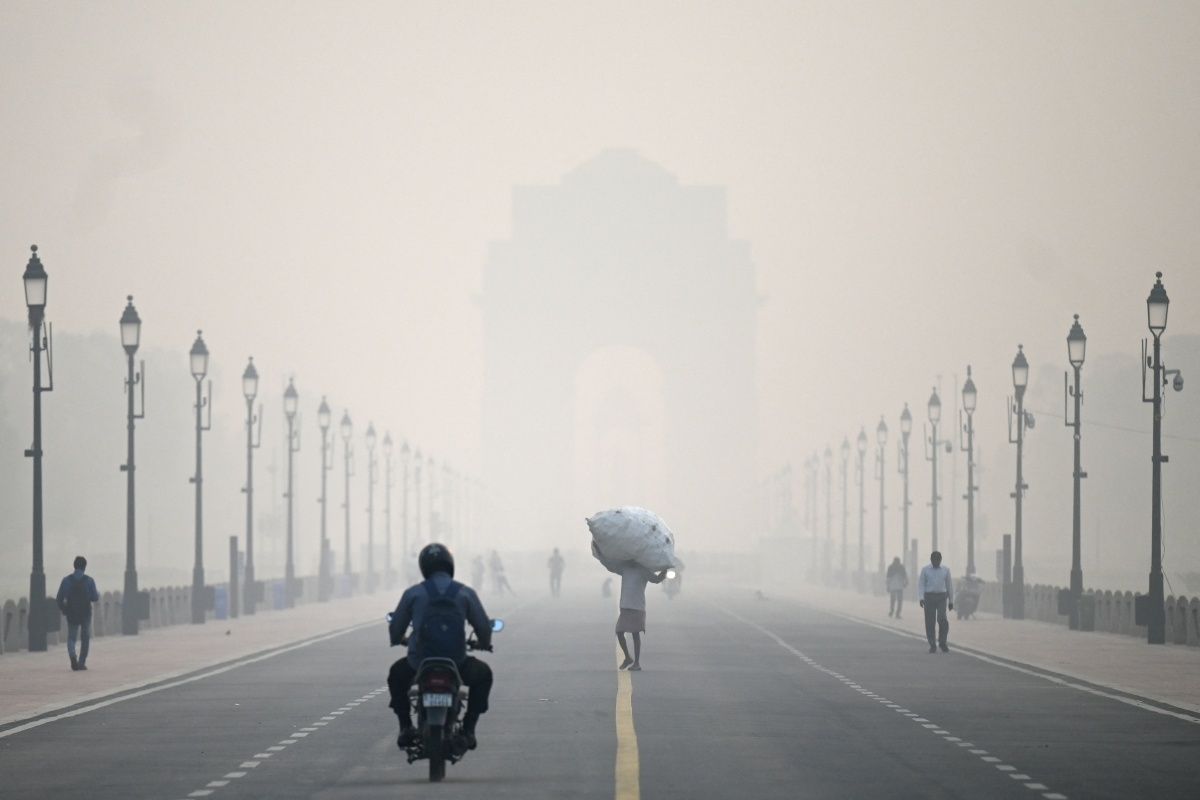Delhi Air Pollution: The severity of air pollution in the National Capital Region has raised alarm for people to understand the fatal consequences of breathing toxic air. Meanwhile, World Health
Delhi Air Pollution: The severity of air pollution in the National Capital Region has raised alarm for people to understand the fatal consequences of breathing toxic air. Meanwhile, the World Health Organization (WHO) has issued a warning stating that air pollution can lead to life-threatening diseases like stroke and more heart problems. From smog hanging over cities to smoking indoors, air pollution is a major health and climate threat around the world, the UN health agency has said.
The warning comes at a time when GRAP Stage III has been imposed in Delhi, and air quality has slipped into the ‘severe category’. On November 6, the Air Quality Index (AQI) in Delhi stood at 399 which was actually better than the last few days. It was 447 on Friday, according to the Central Pollution Control Board. It had reached 450 on Thursday, just one notch short of the ‘severe plus’ category.
Among adults, ischemic heart disease and stroke are the most common causes of premature death attributable to the outdoors. #Air pollutionAnd other implications such as evidence are also emerging #Diabetes and neurodegenerative conditions.
📌 https://t.co/2IgKx2pAVp pic.twitter.com/JAYTvUXejz
— World Health Organization (WHO) (@WHO) November 5, 2022
The World Health Organization (WHO) has warned that air pollution can cause heart disease and stroke, which are common causes of premature death, and evidence is also emerging of other effects such as diabetes and neurodegenerative conditions.
Diseases caused by air pollution
- Increase in heart related problems
- stroke
- Ischemic heart disease
- Chronic obstructive pulmonary disease
- Lung cancer
- Pneumonia
- Cataracts (domestic air pollution only)
- Pregnancy related problems – low birth weight, small for gestational age,
- other cancers
- Diabetes
- Cognitive impairment
- Neurological diseases.
Why air pollution causes diseases?
The respiratory tract becomes the main pathway that is affected by air pollution. Breathing in these pollutants leads to inflammation, oxidative stress, immunosuppression, and mutagenicity in cells throughout our body, affecting the lungs, heart, brain, among other organs, and ultimately leading to disease, according to the WHO.
The organization also said that air pollution can affect almost every part of the body. Because of their small size, some air pollutants can enter the bloodstream through the lungs and circulate throughout the body, leading to systemic inflammation and carcinogenicity.
Exposure to high levels of particulate matter, for example, short-term exposure can lead to decreased lung function, respiratory infections, and exacerbation of asthma. Long-term or long-term exposure to fine particles increases a person’s risk of long-onset diseases, such as stroke, heart disease, chronic obstructive pulmonary disease, and some non-communicable diseases, including cancer.
